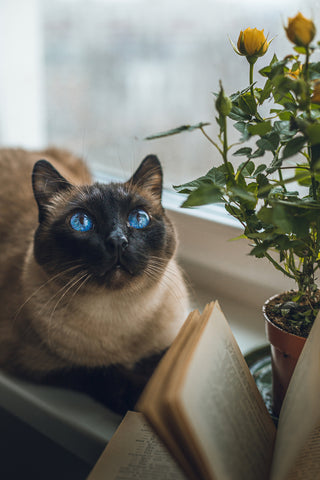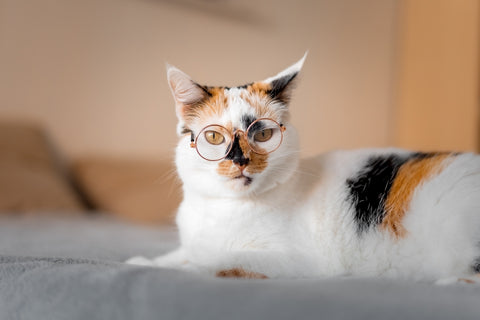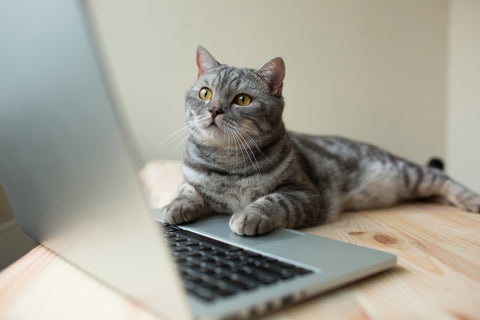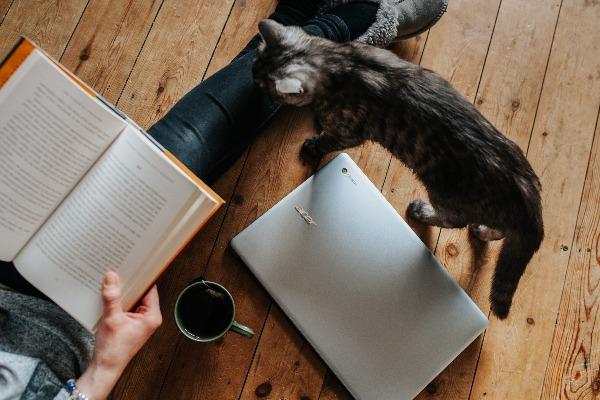
Cat sitting can be a fun, rewarding and an easy way to earn a little extra money. I had two cats growing up: Lucy and Tabby. Having a cat is a great way to learn care taking skills at a young age without a super big commitment like a dog. Luckily, cats are pretty self-sufficient. You can leave them food and water, and they’ll be good for a few days. And, unlike dogs, they can relieve themselves indoors in a litter box. Further, most don’t require much exercise and attention.
However, cats are very loving creatures and do appreciate some companionship. This is why hiring a cat sitter is a good idea if you plan to leave town for more than a couple days. Sitters can also give medication if need be, clean out the litter box, refill food and water, and give you updates (and peace of mind) while you’re away. Here are some cat sitting tips from a house sitter’s perspective to help cat parents prepare for a puuurrrfect visit.
Discuss Instructions or Behaviors You Should Know
Before the cat owner leaves, it’s a good idea to ask if you should be aware of any special requirements or tricks to help keep them entertained. Do they have a favorite toy they like to play with? Is there a certain spot they tend to scratch that you should keep an eye on? Any special notes on how to prepare food? And don’t forget to find out the location of the litter box - sometimes it can be hidden or hard to "sniff" out.

Send Photo Updates
Sending pictures of the kitty is a nice way to build trust with its parents. It helps the owner know that their furry friend is in good paws. You could also send a quick note with any updates or sentiments like "Tabby is thinking of you, she said to tell you hello and she hopes you’re having fun in NYC." But, don’t overdo it as you don’t want to disturb the owner while they’re on vacation or a work trip. I usually send a quick photo with my first check in to let the parent know you are comfortable with their baby and then another towards the end of the stay to give them something to look forward to when they return home.
Keep a Tidy Home
Cats are pretty clean, but their paws can drag litter around the house (especially near the litter box). Sweep up any loose litter and dispose of any droppings in a plastic or paper bag regularly. This is helpful for both the cat and the owner too. There is nothing worse than coming home to a stinky place. Do one last scoop right before the owner returns so they won’t have any chores to do when they get back. If the cat eats canned food, then throw away (or better yet recycle) the aluminum in a separate container and dispose of it immediately, so it doesn’t stink up the house. Finally, use a lint roller or vacuum to clean up any excess fur on furniture and other highly susceptible places.
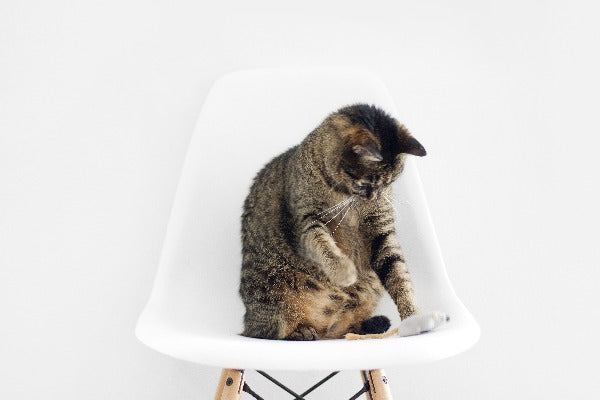
Get Emergency Contact Info
On the off chance that something should happen and the cat gets sick, you’ll want to prepare. Ask the owner to leave the phone number and address of their vet in case you need to call or take them to get care. Hopefully, the cat has pet insurance so you and the owner can rest assured that the best care will be given, regardless of cost.
Spend Quality Time Together
One of the best benefits of hiring a pet sitter is that you can keep the cat company. Cats usually love to be pet and will show signs of affection by rubbing up against you and purring. You can rub behind the ears and give long, loving strokes along the top of the back. And if you’re lucky, they’ll flip over onto their back, and you can gently rub the belly. Toys and laser pointers are fun ways to keep the cat stimulated. And above all else, have fun! That’s the best part of cat sitting.

About the author Sadie Cornelius
Sadie Cornelius does graphic design and social media strategy for CanineJournal.com. Although she doesn’t have any pets herself, she is a passionate animal-lover. She has been dog and cat sitting regularly for over 10 years and researching and writing about pet-related content for Canine Journal since 2012.

